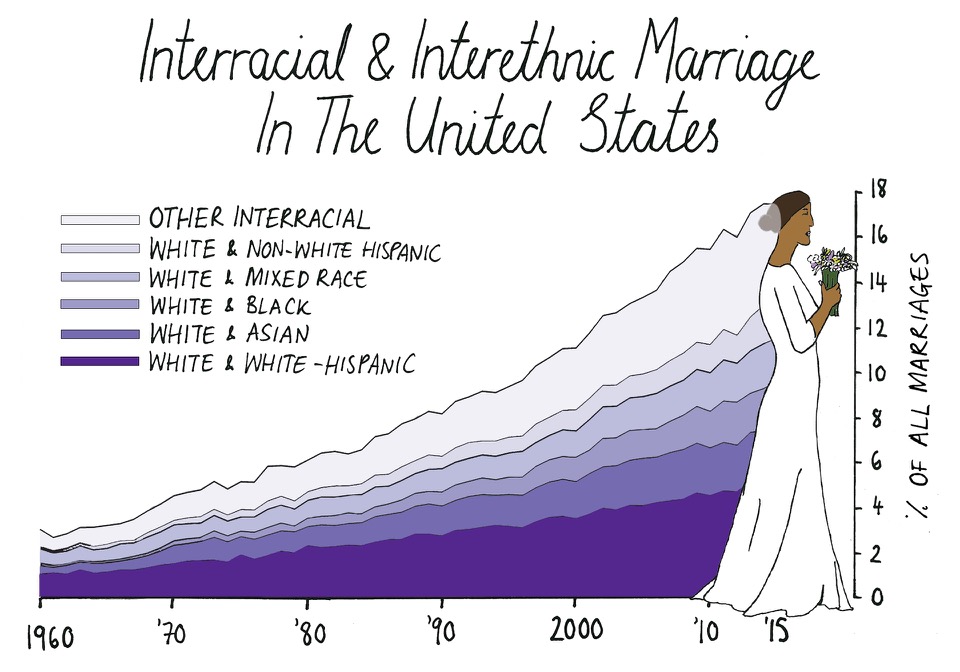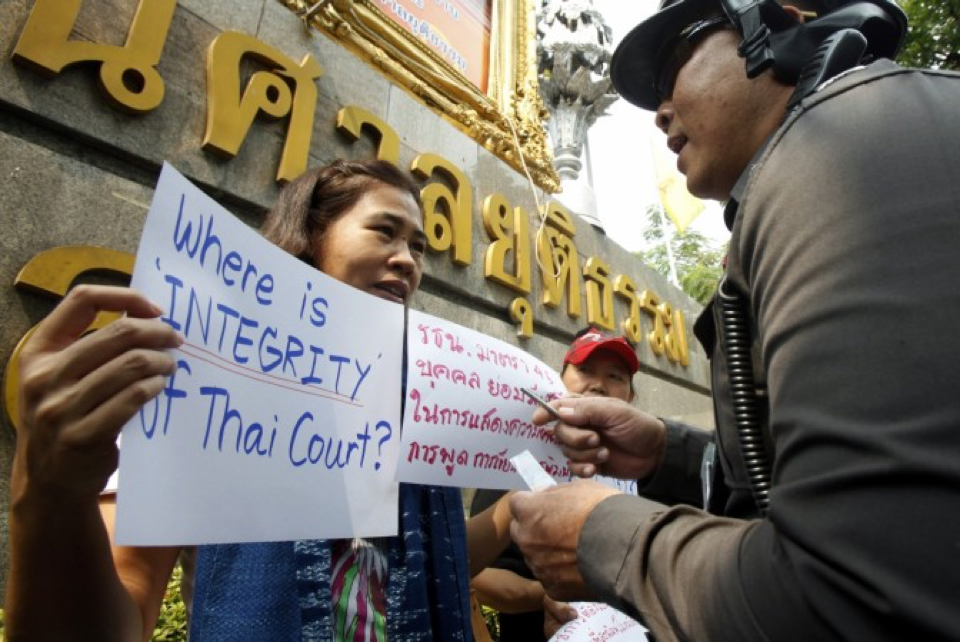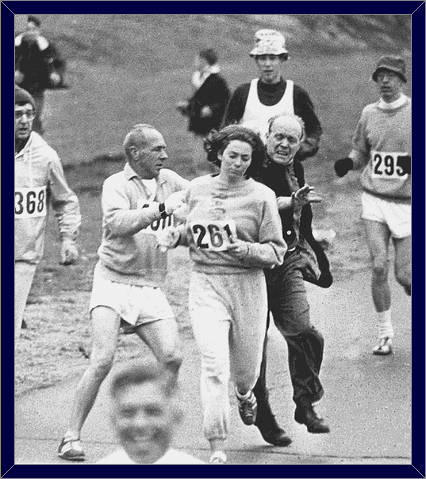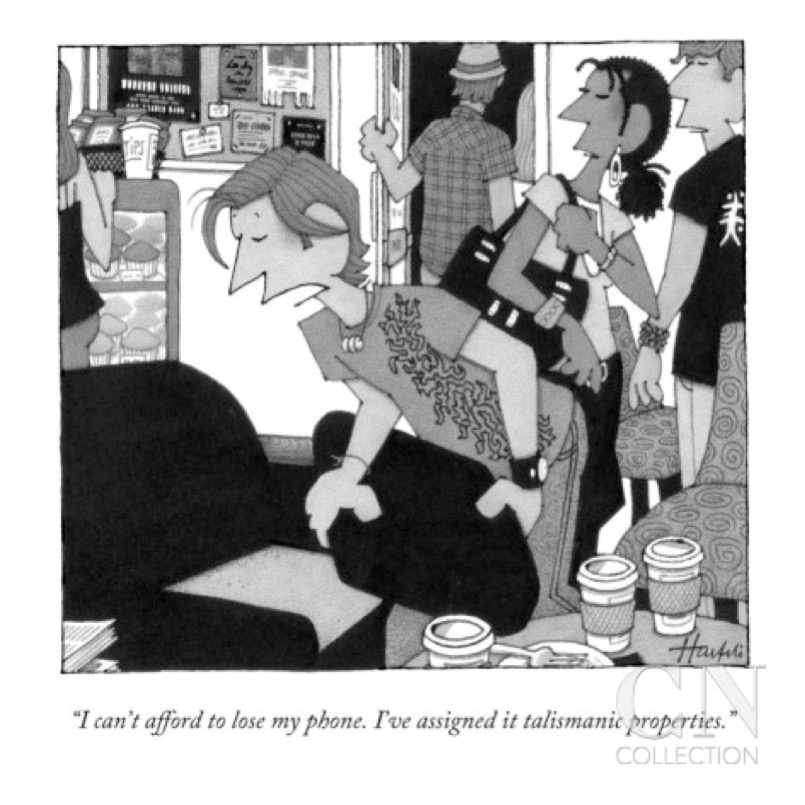Contrapoints
Contrapoints/Natalie is my all time favorite youtuber and source on leftist politics and the alt-right. Natalie is an philosophy phd dropout who uses her academic knowledge, humor and activism to create educational social justice content. This video focuses specifically on the alt-right: what they are and how to spot them. It's harder than you may think. I cannot recommend her enough!
Imagining Race and Gender in History
This twitter thread by medieval lit scholar, Andrea Whitacre, explains how our understanding and imagining of history is shaped through popular culture. Hit television series, Game of Thrones, is unpacked to reveal how historical fiction relies on racist ideas of what our past looks like. This ties into our class discussion on racial diversity in history, and how in reality no countries or cultures were ever racially "pure".
Yesterday I gave a talk on the portrayal of race in Game of Thrones for a "How Medieval is Game of Thrones" panel hosted by @Medieval_IU and @izzy_maff. As promised, here is a thread with my longer answer to that question.
— Andrea Whitacre (@AndreaWhitacre) March 23, 2018
Medieval POC Twitter: https://twitter.com/medievalpoc
This twitter account is self-defined as "People of Color in European Art History: Because you wouldn't want to be historically inaccurate." Our understanding of Medieval Europe is largely shaped on inaccurate and racist history. This account posts medieval artworks of POC, and shares many fascinating articles and resources on race.
Agostino Brunias & #flowerpower
— medievalpoc (@medievalpoc) April 1, 2018
A West Indian Flower Girl and Two other Free Women of Color
England (c. 1769)
oil on canvas, 12 ½ x 9 ¾ inches (31.8 x 24.8 cm)
Yale Center for British Arthttps://t.co/QIuPwb03hO pic.twitter.com/QLlO50Xn0Z
Football’s Brain Injury Crisis Lands in Family Court
...
“A father, John Orsini, has gone to court to prevent the youngest of his three sons from playing high school football because, he said, scientific studies have revealed the perils of repeated blows to the head — especially for an athlete, like his son, who has a history of concussions. The boy’s mother, Mr. Orsini’s ex-wife, believes he should be allowed to continue playing because he understands the risks.”
https://www.nytimes.com/2018/03/05/sports/football/concussions.html
Free Access to the New York Times
Central Student Government has bought a number of passes for the New York Times. Click here for information about how to access them.
Particularly Strong Answers from the First Exam
1. What are "structure" and "agency"? Define these terms and illustrate them with one example from course readings or films.
From Madeline -
Structure is defined as the broader institutions within society that constrain the course of one's life, for example class or gender. Agency is the actions an individual takes out of one's own free will within these broader structural institutions. An example of structure vs. agency can be explored in the 'Live Nude Girls Unite' film, as the worker's were constrained by the structure of gender which delegitimizes female work, especially sex work. The girls, however, represented agency in choosing to continue the work while feeling empowered, and ultimately unionizing.
From Katie -
Structure refers to the ways in which people’s lives are influenced and managed by societal norms and establishments, such as gender. Agency refers to the fact that despite the imposing nature of structure, people are still able to make choices about how to live their lives. An example of these terms is in Live Nude Girls Unite! The women live within the structure of management and have to follow certain rules about how they look and the impact that has on switching shifts; they have to have lighter skin or bigger breasts. However, they have agency when they choose to unionize to fight for better working conditions.
2. How do theorists like Judith Butler define sex and gender? How does this contrast with common understandings of those terms?
From an anonymous student -
Judith Butler defined sex and gender as separate terms. Sex is a person's biological classification of male or female. Gender is influenced by societal norms and one acts out their gender through repeated practices. For example, in the reading of Lese and Efe the practices that defined a male or a female were further explained. According to the culture, the men would build the home, but the women would clean it.
From Madeline -
Judith Butler fights against the common understanding of sex and gender as the same thing that is 'natural'. Instead, Butler argues that sex is the biological traits one receives at birth, but gender is socially constructed through everyday acts. For example, a common understanding of sex and gender in American may assume that biological males 'naturally' are tougher. Butler, however, would refute this claim and argue that society reinforces a binary that teaches males to be tougher and not show emotions through everyday repeated performances of gender, and that gender does not naturally equal one's sex.
3. What does the phrase "order without law" mean? How does it help us analyze law and legal systems?
From Katie -
“Order without law” refers to the ways in which people settle legal disputes without going to court. An example of this is how the cattle ranchers settle disputes by using IOU’s or trading. This helps us analyze law and legal systems because it gives insight into people’s opinions about them. Often times, people can view law and the legal system as more of a burden than a way to help.
4. How do law and culture intersect and interact? Use a specific example from the course readings or films to illustrate your answer.
From Vianney -
Law and culture intersect and interact because cultural norms influence laws and laws enforce those cultural norms. An example being the marital laws in Japan stating married coupled need to have the same name. This reflects the family ideal in Japanese culture, and now the law reinforces that ideal. Women now want to change this law, and if it does, the law will then reflect a more modern feminist culture.
From Ryan -
Law and culture intersect through their complete interdependence. Law creates culture and culture makes law accepted. For example, in Islamic law, one’s ascribed status and relations to others are a strong indicator of their honesty and reliability. Therefore, if a witness has many people who are considered respectable vouch for them in a court proceeding, they have higher chances of avoiding charges. In other cultures, however, this is not acceptable and is not law. In British and American court proceedings, one’s background, unless directly related to the case, is completely disregarded. The emphasis on the importance of status and relationship is different in each culture, and this is reflected in the law.
From Fernando -
Laws can in a sense reflect culture or laws can be strengthened because of culture. An example would be Japanese family name laws that require married couples to have the same last name. There have been some cases brought to the courts on the issue but the cultural practice has been so ingrained that the cases never really stood a chance.
5. In Street Life Under a Roof, what research methodologies did Margaretten use? What challenges and benefits did those methods bring to the project?
From Jackie -
In “Street Life Under a Roof”, Emily Margaretten used ethnography via recorded interviews and prolonged observation and infiltration of the community. When Margaretten first started her research, she thought she might focus on younger children, but decided against that because she thought she might have too large of an impact on younger kids’ lives. Another challenge, besides possibly impacting normal lives too much, was that people would reveal only certain information to her in interviews. This is part of why her prolonged stay had such a positive effect — the youth of Point Place were able to grow to trust her over the span of two year. Ofentse, her personal assistant, also aided her acceptance into the community by acting as a sort of cultural liaison.
6. For some viewers, the oracles in Witchcraft among the Azande are illogical and strange. How and why do the oracles make sense to the people represented in the film?
From an anonymous student -
Since law and legal systems are very heavily influenced by culture, the people who reside within said legal systems will understand them the most. To the people represented in the film, these practices made sense because they were raised knowing that these methods worked. The oracles therefore make sense to these people because it is a large part of their culture and legal system. Similar to how DNA tests are seen as foolproof science in the American legal system, the chicken death is seen as foolproof evidence in their legal system.
7. What is hegemonic power? Illustrate your example with one example from course readings or films.
From Jackie -
Hegemonic power is when regular people are convinced to identify with an elite class, and are convinced that what is best for the elite is also what’s best for them. An example of hegemonic power is in “Live Nude Girls Unite!” in terms of their wage policy. A worker was happy to work her way up in gaining higher wages through raises. But, she could be demoted at a moment’s notice due to a minor infraction. When they work themselves up, the management is aiding in convincing them they are part of a more elite class, but can also put them in a position of inferiority very easily.
From an anonymous student -
Hegemonic power is the way in which social norms influence individuals to believe that what they want overlaps with what the elites want. In Live Nude Girls Unite!, the women in an open shop had the choice between joining the union or not joining the union. Many of these women did not join the union, even though it would benefit them, because they were convinced by the norm of not joining the union that they wanted to not join, which was what the shop owners hiring these women wanted. They were convinced by the social norm to follow what the elite wanted, thinking it was what they wanted, thus demonstrating hegemonic power.
Exam Study Tips
From an anonymous student -
To study for the exam, I made a study guide by typing up the notes I took in class, summarizing all the readings, and summarizing the movies. For the readings, I wrote the main argument and other points that were made. This forced me to skim through all the readings again. Then, I just read the study guide over and over again!
From Kelvin -
To study the exam, I reviewed every class slide and my lecture notes together at the same time, reexamined the reading quizzes, and made sure that I finish reading every single assigned reading and reread parts I was confused about or was emphasized during the discussion. For the short answers section of the exam, I would answer each question with one idea of the lecture and one idea from reading, so it was extremely critical for me to review the lecture slides and make sure I knew the readings. What did NOT work for me was rereading or reskimming the readings. I also find taking notes while reading too time-consuming. What I prefer to do regarding reading is spend a large amount of time during the first reading. I would sometimes take 2 hours just to read one assigned reading so I can make sure I have a very deep understanding of the material. I also find reviewing the lecture slide alongside my own notes very helpful because it allows me to recall what was important during the lecture.
From an anonymous student -
I typed up all of my notes from lecture and discussion, rewatched the lecture recordings when I had missing notes/wasn't completely confident with the concepts addressed, and skimmed through the readings (I print out my readings and write margin notes, so the notes were particularly helpful). I know it's not a possibility for everyone, but I found that having hard copies of the readings was really helpful. I think that going through the lecture recordings is also extremely helpful because you see moments/explanations you might have otherwise not remembered.
From Alanna -
I studied for this exam mostly by rereading the readings I felt shaky on/didn't feel like I read thoroughly enough the first time and took notes on the main points. Then I skimmed over the ones I felt like I understood more and looked over my notes from the films.
I started looking through lecture slides but then thought it would be easier and faster to just look over my notes. Taking good notes on readings and doing them when they are due and not trying to cram them in in the days before the exam I think are both crucial if possible.
From an anonymous student -
I re-read all of the readings and looked over my notes for the films. I made flashcards on the lectures. It was really beneficial for me to make flashcards and quiz myself on major concepts as well as definitions and specific points in the readings. Memorizing specifics was not as important as understanding and applying the big ideas for me. The readings were very important, so definitely do the readings. Otherwise, just scanning over things is not always effective for me. I always think I know something until I actually quiz myself on it. Try to teach other people about concepts or talk about the readings or the films with people. Teaching others helps you learn yourself.
From an anonymous student -
To study for this exam, my friends and I created a detailed study guide of all the readings and films from class using the questions we go over in discussion, along with detailed plot summaries. We also made a quizlet of important terms from lecture and from the readings/films to familiarize us with all the terms. While I found that skimming the readings and looking at my annotations from the past were helpful, I don’t think that re-reading anything fully helped me. I think quizlets are a really easy way to study a lot of terms at once, since the terms appear multiple times in different ways on the quizlet Learn function.
From Ryan -
My main tactic, that was suggested to us by our GSI, Lisa, was to compare notes/ ideas from the readings directly to what we talked about in lecture. This allowed me to see bigger themes, and think of specific examples for those themes from the readings. I typically take Cornell style notes for both readings and lecture. I tried to stay away from completely rereading articles so as to avoid getting caught up in small details. I went through each week, listed what our main objectives/ ideas were, and then looked at the readings through the lens of that week. I know that this should be the way we look at the readings every week, but in a way I found it easier to review major ideas when everything is said and done. Reviewing in this way really helped make connections that I hadn’t fully made before.
From Anne Else -
I used the four questions you suggested to go through for each reading and film (main argument, method, evidence, conclusions). I took notes for each assigned piece and these questions really helped! I also read all of my notes from lecture and discussion a few times to solidify the information.
From an anonymous student -
My preferred study method is to rewrite key topics from both readings and lecture in a more organized way than when I'm scribbling notes in lecture. I then use this as a study guide because it is more digestible. Plus, writing things down again helps me remember them. When I study, I need to be in an environment where I am free from distraction. Sitting in a Starbucks where there is a lot of background noise isn't conducive to studying for me. Finding an environment that works for you is the best thing you can do for your study habits. I found that reviewing the readings and even rewatching the films was the best method for this specific exam, as each question required examples from this material.
Interracial Marriage 50 Years after Loving

What's behind the rise of interracial marriage in the US?
Attitudes, migration patterns, availability of partners and education are all factors of interracial and interethnic marriages
Full story here.
More on the Dangers facing Laborers
127 workers at a Cambodian factory were hospitalized Tuesday due to exposure to fumes in the factory. The factory produces products for Nike and Adidas. Most of those workers fainted, but some were sent home sick. Adidas responded saying they were committed to ensuring safety in their factories, but Nike didn't respond by the time the article was published.
https://www.bizjournals.com/portland/news/2018/01/23/127-workers-hospitalized-tuesday-in-factory-used.html
Legal Sex
"There is a new rule in Washington that became effective January 27th that says people who don't identify as male or female can actually change their sex on their birth certificates to X. This relates to our discussion about intersex people because they now have an opportunity in Washington to identify as themselves instead of being forced into one category or the other. This new law change can also help those that identify as non-binary because it breaks the binary and destigamatizes their identity. Hopefully it will lead to a more positive outlook on non-binary gender and sex identities and decrease harassment and intimidation people experience in their daily lives.”
http://abcnews.go.com/US/washington-state-3rd-sex-option-birth-certificates/story?id=52162223
Safe Spaces

Violence Against Women
http://interactive.unwomen.org/multimedia/infographic/violenceagainstwomen/en/index.html#home-2
More on Biological Sex
“In this video, Riley J Dennis explains the problems with the terms "male" and "female" in regards to trans folks. She discusses how these terms further push the false idea of the gender binary, and how our biological classification on sex is outdated. She goes in depth about how labeling trans people as "biologically" male or female in regards to their genitalia is not only wrong scientifically speaking, but also harmful to the trans community.”
While we’re on this topic, here is the short film you watched in section about similar topics:
More on Maps
Trading Places trailer
New Case about Last Names and Gender Discrimination
Male CEO seeks compensation over gov't ban on different surnames for spouses
January 9, 2018 (Mainichi Japan)
Japanese version

Cybozu Inc. CEO Yoshihisa Aono, left, and lawyer Tomoshi Sakka explain the four cases provided for under the Family Registry Act, under which only married Japanese couples cannot choose separate surnames, at a press conference in Tokyo's Chiyoda Ward, on Jan. 9, 2018. (Mainichi)
A male software firm CEO and three others filed for 550,000 yen each in government compensation in the Tokyo District Court on Jan. 9, on the grounds that forcing Japanese couples to choose one surname upon marriage is unconstitutional.
[Full article here]
More on Implicit Association Tests
I found this article that articulates the main criticisms of the IAT:
https://qz.com/1144504/the-world-is-relying-on-a-flawed-psychological-test-to-fight-racism/
She discussed that the IAT only weakly predicts behavior (and not more so than explicit tests of racism), the reliability is weak (0.5 at the high end which is not acceptable in psychology), people can predict their own IAT results suggesting that it's not actually unconscious or something that people are unaware of, trainings that use the IAT are not effective in changing behavior, and so on. It's a bit long, but I think she does a good job at describing why it's flawed for both academics and non-academics while recognizing that it could be useful in some ways.
No Safety Net Theater
From Dean Dillard -
It's my pleasure to draw your attention to a number of upcoming events from our colleagues in UMS (University Musical Society) who have really stepped up their efforts to engage the campus community in R&E conversations through the arts. Here's the link to events that you might find interesting and relevant for your students and classes, starting with a workshop this Saturday on understanding systemic racism:
https://ums.org/performance/workshop-introduction-to-systemic-racism-with-eracce/
For students the cost is only $15; if you have LSA students who want to attend but for whom this cost might be prohibitive, please send them my way (ASAP) and I'll see what my office can do to assist.
And here is information on the 'No Safety Net' theater series, as described by UMS: http://ums.org/no-safety-net/. UMS has organized a number of excellent educational events on campus and the community in tandem with the theater productions.
'From racism in America to terrorism to transgender identity to radical wellness and healing, these theater pieces will ask us to confront our own opinions and biases, with an eye toward better understanding and a greater resilience to face the world we currently live in.'
Still Separate. Still Unequal
The Other America: Still Separate.
Still Unequal.
Friday, January 19
8:00 AM - 5:00 PM
Michigan Union
(First Floor, Kuenzel Room)
REGISTRATION
This interdisciplinary, day-long event will focus on racial inequality as it manifests in relation to the lived experiences of Black Americans. Throughout the day, panelists will discuss the criminal justice system and state violence against Black people, economic inequality and immobility, inequities in healthcare and education, and issues pertaining to race and the environment. The event is free, open to the public.
Co-sponsored by the College of LSA, Poverty Solutions, Institute for Research on Women and Gender, Center for Political Studies, Institute for Social Research, Political Scientists of Color, Rackham Graduate School, School of Public Health, and Departments of Political Science, Psychology, Sociology and History.
Invisible No More: Police Violence Against Black Women and Women of Color
Invisible No More: Police Violence Against Black Women and Women of Color
Thursday, January 18
6:00 PM - 7:00 PM
Hatcher Graduate Library Gallery
(Room 100)
Andrea J. Ritchie
Researcher in Residence, Barnard Center for Research on Women
Drawing from her recent book, Andrea Ritchie examines how Black women, Indigenous women, and women of color experience racial profiling, police brutality, and immigration enforcement. Placing stories of individual women—such as Sandra Bland, Rekia Boyd, Dajerria Becton, Monica Jones, and Mya Hall—in the broader context of the twin epidemics of police violence and mass incarceration, Ritchie documents the evolution of movements centering women’s experiences of policing and demands a radical rethinking of our visions of safety—and the means we devote to achieving it.
Andrea Ritchie, J.D., is a Black lesbian immigrant whose writing, litigation, and advocacy has focused on policing of women and LGBT people of color for the past two decades. She is currently Researcher in Residence on Race, Gender Sexuality and Criminal Justice at the Barnard Center for Research on Women’s Social Justice Institute, and was a 2014 Senior Soros Justice Fellow. She is the author of Invisible No More: Police Violence Against Black Women and Women of Color (Beacon Press, 2017), co-author of Say Her Name: Resisting Police Brutality Against Black Women (African American Policy Forum, July 2015), and Queer (In)Justice: The Criminalization of LGBT People in the United States (Beacon Press, 2011). Andrea is also an experienced litigator, policy analyst and advocate. Follow her on Twitter: @dreanyc12
This event is part of the university's annual MLK Symposium. Presented with the Departments of Political Science and Women's Studies.
The Power of "Natural"
From the opening paragraph -
The belief that “natural” is better has animated many food and health trends in recent memory, with natural as a shorthand denoting purity, a lack of processing, or rejection of modern medicine: raw foodism, enthusiasm for raw dairy, the paleo diet, and organic evangelism. Next up: “raw water.”
Why the Raw Water Movement Is So Obnoxious
Today in 1959...
Today in 1959, Richard and Mildred Loving pleaded guilty–to being married, and were forced to leave their home in Virginia.
— ACLU of Virginia (@ACLUVA) January 6, 2018
Justice for the Lovings wasn't restored until June 12, 1967, when the Supreme Court ruled that miscegenation laws are unconstitutional. pic.twitter.com/viZ3aeeqw8
Gum in Singapore
To be clear, it’s the emphasis on the word “odd” that makes me suspicious.
16 odd things that are illegal in Singapore
Students' Choice - Picking a topic
Please take some time to review the topics already in the syllabus before you cast your vote. The vote will take place in week two, and information will be added here and emailed to you.
Here are some possible topics I came up with, and will include on the ballot in week two. **IF YOU WANT TO SUGGEST ANOTHER TOPIC, please feel free, but email it to me
Possible topics, in no particular order:
abortion
sexual harassment
immigration
citizenship
legal education / legal workplaces
housing discrimination
families of incarcerated people
trans rights
sexual assault
Native American courts
Title IX on campus
transnational human rights
maternity discrimination
weight discrimination
pornography
activist methodologies
Translated Thai Protest Sign

He says - My Thai friend translated one of the Thai protest signs. He said the sign second to the left is "People should have rights to free speech."
That makes sense! Thanks to Kelvin and his friend.
"Dear Sisters" letters
Here is the original letter sent from Alianza Nacional de Campesinas.
Here is the January 1 letter referencing the previous one. Full text is here. (You have to scroll down a bit.)
Kathrine Switzer's 1967 Boston Marathon

I thought I knew this story but her full narrative really blew me away. Hint: the boyfriend doesn’t come off looking so great.
Lese Majeste in Thailan
Thailand's lese-majeste law 'stifling dissent'
Laptops in class lower grades
“The two US academics who conducted the research found that students who used laptops, typically in “laptop required” or “laptop optional” classes, scored between 0.27 and 0.38 grade points lower on a four-point grade point average scale than those who took notes using pen and paper.
When converted to an alphabetical scale, the results meant that laptop-using students were scoring roughly half a grade lower – proving the difference between, for example, a B+ (3.3) and an A- (3.7), or a C+ (2.3) and a B- (2.7).”
Using laptops in class harms academic performance, study warns
Policy on Tablets and e-Readers
Given my sense of the rewards for making our class free of digital technologies, what is my policy on tablets or e-readers (like ipads)? I understand that they can be really helpful although I am still convinced that many people have higher reading comprehension on paper.
I am trying to avoid a situation in which students are more absorbed in their technology than the conversation or their own thoughts. If you can have an e-book in front of you and not be at all disassociated from the class, you are allowed to use it. However, please know that if we have to ask you to stop messing with whatever technology is near you, we will ask you not to bring it back. Therefore if you think you might have a hard time not using the e-book for anything other than looking up a quote or following along with someone else’s point, I recommend you print the readings on paper.
Also, please remind yourself that our phones, especially, are now literally being designed to make you never want to let it go, so you might feel some pangs of discomfort or confusion.

Policy on Laptops and Cell Phones
I believe that it is incredibly hard not to multi-task when you are sitting in front of a screen, be it a TV or computer screen. And, although multi-tasking might feel good to some people at some moments, every piece of evidence I have ever read or experienced convinces me of the opposite. Multi-tasking hinders listening, thinking, engagement, and learning, all of which we are trying to maximize in the classroom.
More and more research makes clear that laptops do not help us think or learn in a classroom. Laptops, tablets, and phones are extremely distracting, both to the person using the person using them and, perhaps more importantly, the people around and behind the user.
Therefore, in my courses, I prohibit the use of laptops, tablets*, and cell phones for all students except those with demonstrable medical needs to use them. If you fall into this latter category, please email me within the first week of class.
To be clear, I think technology can be a wonderful thing and I have no problem with video games or blogs or cat videos, but only in the right context. I do not believe that having access to the internet’s firehose of information is good while you’re in a (brief) class session trying to think, listen, and share your ideas.
* I will permit students to buy and read e-versions of course books on a tablet, but if you bring that tablet to class you must only use it for looking up the reading.
Research that supports this policy:
Laptops Are Great. But Not During a Lecture or a Meeting.
From Facebook to Folsom Prison Blues: How Banning Laptops in the Classroom Made Me a Better Law School Teacher.
Is Google Making Us Stupid?


